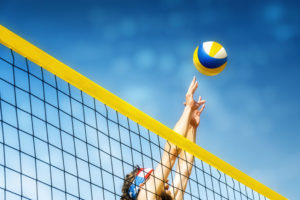Adult Stem Cell Therapy & Platelet Rich Plasma
Refractory Jumper’s Knee and How to Treat It With PRP
 Jumper’s knee, also known as patellar tendinopathy, is a painful inflammatory condition of the patella tendon that leads to pain in the front of the knee. Any repetitive overloading activity can cause jumper’s knee to develop, but as the name suggests, jumping is the most common trigger.
Jumper’s knee, also known as patellar tendinopathy, is a painful inflammatory condition of the patella tendon that leads to pain in the front of the knee. Any repetitive overloading activity can cause jumper’s knee to develop, but as the name suggests, jumping is the most common trigger.
Since athletes like volleyball, soccer, and basketball players are most like to develop patellar tendinopathy, it is essential for patients to find a treatment method that can address the root cause of the condition and support long-lasting healing. Many traditional treatments like steroid injections simply mask the pain and lead to weakening of the tendon. This is why Dr. William Bennett and his team at Bennett Orthopedics and Sportsmedicine are committed to using PRP to treat refractory jumper’s knee and help athletes get back to doing what they love.
An Introduction to Jumper’s Knee
Elite athletes that engage in explosive jumping sports are very vulnerable to jumper’s knee. What begins as minor pain develops into a disabling and chronic condition that reduces function to the point that 53 percent of patients quit their sporting careers as a result. Rest, ice, electrotherapy, massage, taping, anti-inflammatory medication, and corticosteroid injections are the most common non-surgical treatments to minimize jumper’s knee symptoms, but they are often ineffective.
Successful Treatment of Jumper’s Knee With PRP
Platelet-rich plasma (PRP) has emerged as an effective jumper’s knee treatment, capable of delivering results that no other standard treatment can. The concentration of platelets and autologous growth factors found in PRP stimulates a strong healing response at the injury site and plays a key role in mediating healing of the damage knee tissue.
Recent research indicates that patients who have jumper’s knee treated with PRP demonstrate statistically significant improvements in pain and function after multiple injection treatments. Overall, PRP injections have the potential to promote healing in refractory jumper’s knee, even in difficult cases in which traditional treatments have failed. One 22-year-old soccer player, for instance, had a three-year history of refractory jumper’s knee and had failed both non-operative and surgical treatments. She was able to return to her previous activity level just four months after her PRP treatment concluded!
Dr. Bennett has seen these and many other success stories first hand, which is exactly why he advocates the use of PRP for so many of his patients. If you are an athlete facing an injury that threatens to take you away from the sport you love, call (941) 229-1648 to make an appointment at Bennett Orthopedics and Sportsmedicine in Sarasota, Venice, or Bradenton, Florida. You can learn more about the potential for PRP to stimulate deep and natural healing within your body.






